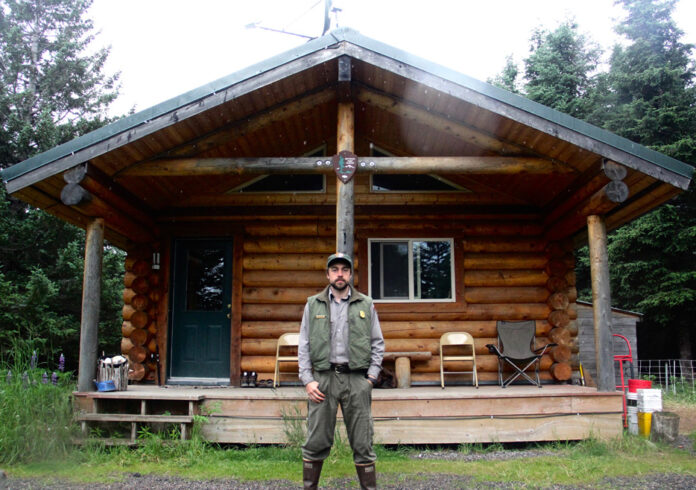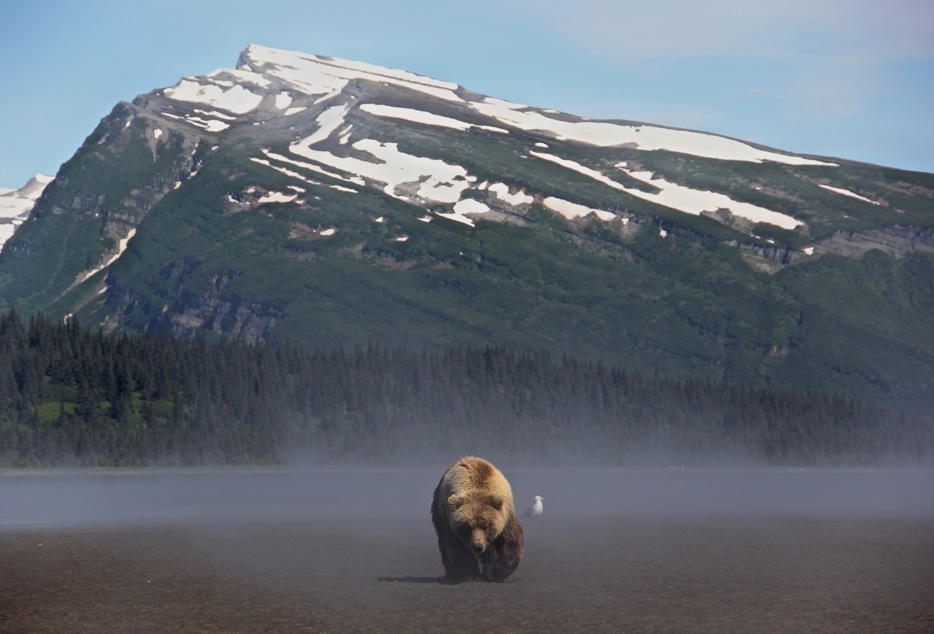
Author Ken Ilgunas (born 1983) has worked as a backcountry ranger in Alaska, hitchhiked 16,000 kilometers across North America, paddled 1,600 miles across Ontario in a birchbark canoe, and lived in a van for two years while studying for his master’s degree in liberal studies at Duke University. He’s written for The New York Times, Backpacker, and Smithsonian. His adventures and books have been featured on The Tonight Show with Jay Leno, The New Yorker, and National Geographic. He is the author of two travel memoirs, Walden on Wheels and Trespassing Across America (about his 2,700 kilometer-mile hike across the Great Plains following the proposed route of the Keystone XL pipeline). His latest book, This Land Is Our Land, advocates for the Scottish “right to roam” to be imported to the United States. He is currently at work on a fourth book and lives in Scotland with his wife and daughter.
Author Laima Vincė interviewed Ilgunas for Vilnius Review, in a new series on North American writers of Lithuania heritage who write in English but maintain ties with Lithuania, and honour and reflect on their Lithuanian heritage.
Asked about his heritage, Ilgunas admitted knowing almost nothing about it. He found out that his ancestor, Juozas Ilgūnas, left Lithuania in the 1890s and sailed to Scotland, one of many who would travel to the East Coast of Scotland and then make their way to the West coast to board a ship to America. Many, including Juozas Ilgūnas, stayed in Glasgow and went to work in the coal mines in Scotland. Ken’s father was a steel worker in Scotland, and later moved to Canada and worked in the steel industry here. Ken was born in Canada, later moving to America. His last name was the only vestige of Lithuanian culture that survived.
At one point, he received an email from a Lithuanian woman, Ugnė, whose maiden name was Ilgūnas, and her father had been Stanislovas Gediminas Ilgūnas (1936-2010), a signatory of the Lithuanian declaration of independence in 1990. Ken became curious to find out if they were connected, and in 2017 decided to travel across Europe, starting in Britain, where he met many family members of Lithuanian heritage. He visited Ugnė in Lithuania, was warmly welcomed by her but didn’t find out if they are actually related.

Genetic tests (“23 and Me”) showed that he came from Vilnius, with a mixture of 50% Polish (his mother), 25% Lithuanian, and 25% Scottish. The question remains – why does knowing our roots matter? “We are seeking to elevate ourselves, to self-improve, to be the best person we can be, and so we feel that we need to tap into that ancestral tree and take some of our ancestor’s sap and supercharge ourselves in some way.” Although he walked in Lithuania’s fields and forests and loved his time in Lithuania, he didn’t feel any “mystic connection”, there or in Scotland. “Maybe what I had is enough. I’m curious about a cultural echo and how a culture can echo through the generations, and maybe there comes a point when that echo just dims into silence.“ Yet he does sense the cultural echo in others.
His interviewer found that when she read his books and essays, she discovered much that reflects a Lithuanian character in Ken. For example, an essay about a summer spent in Alaska is introspective, about a close connection with nature, about being alone out in nature, themes she finds in Lithuanian literature and many Lithuanians’ lives.
As to the question of keeping his Lithuanian last name, he said: “The name is a survivor. That is how I think of Lithuania as well. Lithuania is a survivor… Lithuania’s story is an amazing story of resilience… at least I can say, I’m Lithuanian, this country did that. This country survived.”
His moment of connection, he said, happened when he visited the Museum of Occupations and Freedom Fights in Vilnius and saw the legacy of the Soviet occupation, reverberating through the generations even now. “You can look at the suicide rates in Lithuania; you can look at the alcohol problems. It’s all connected to this dark history. I saw it everywhere. When I went to the KGB Museum, I really understood why everyone doesn’t come across as a cheery happy go lucky American there. When neighbors are turned against neighbors, when people are informing against each other, that breaks down social trust. I think that’s difficult to repair. On that visit to the KGB Museum, I experienced my first deep emotional connection with Juozas.” Yet he was happy that Juozas Ilgūnas had left, “happy he got on a boat and went to Scotland where he was able to lay down a family foundation for the generations that followed. He lived outside of war and occupation and was able to live in relative freedom. His descendants were able to slowly climb the socio-economic ladder. We went from a family of coal miners to steel workers to ambulance drivers to butchers to contractors to engineers. I was happy that he left, and I was happy that we didn’t have to live with that legacy of war and occupation.”
His essay on living in Alaska is available at vilniusreview.com.



























